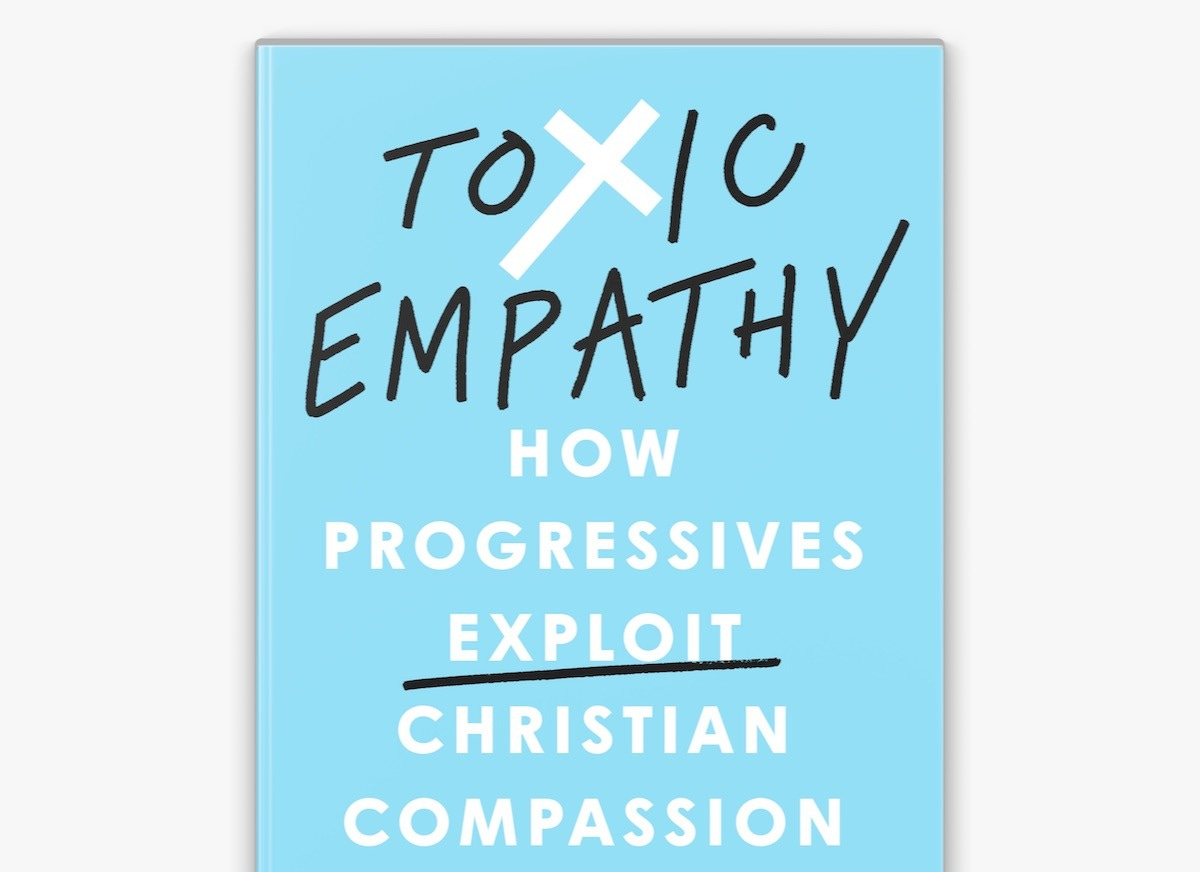the Empathy List #128: Toxic Empathy?
Why I believe empathy IS the heartbeat of the Christian story.
Hello friend, Liz here.
For several years now, the conservative Christian Right has been debating the legitimacy of a concept close to my heart: empathy.
Some prominent pastors have said empathy is a sin. In fact, a recent book has claimed that empathy is “toxic,” that empathy is a tactic that political left activists use to exploit true, deep-feeling Christians.1
I haven’t addressed this before because… well… these remarks felt irrelevant to what I’m trying to do here. I believe the question of whether empathy is an “okay” emotion for a Christian to indulge is wrong on multiple counts.
I happen to think that every single emotion us humans experience acts as a neutral sign post, revealing the truth in our bodies. This is true even and especially of negative emotions, which we’re more likely to suppress—and when we try to suppress emotions, they tend to come out sideways. This is therapy 101: just try to outrun your emotions and see how they erupt at the most inconvenient times.
Emotions cannot and should not be avoided—they simply are the reality. And they reveal what is inescapably true about our interior selves. Emotions can certainly lead to errant or dysfunctional behavior,2 sure, and that must be addressed if we want to live in communion with God and others. But I don’t believe any emotion, in itself, is wrong for anyone to feel.
Further, the stories I feature here at the Empathy List and write elsewhere are carefully constructed to direct your attention in a way that subverts preconceived notions and prejudices. We Christians, of course, are not immune to prejudice, a fact that history echoes loudly back to us. And no human in the history of the world can escape her assumptions. But in my writing, I try to model another way.
For example, you may remember that I wrote about how I used to be a single-issue pro-life voter… but I now vote pro-choice. (And no, I have not changed my mind about the sanctity of every single life, fetuses included!)
As I have learned to practice a slow, contemplative, self-aware and non-anxious faith, I have begun to notice Christianity’s orientation toward the outsider. That is, while God loves and cherishes us insiders, the Divine Spirit is always seeking the one who stands just outside the circle. The single sheep that has wandered alone onto the road, that is the sheep that God retrieves, and God pursues this rescue mission even when it means leaving the rest of the flock behind.
This orientation toward the outsider is fundamental to historic Christian belief: ours is the always-seeking-out God, and the fenced field in which we, the saved, roam is always widening to include one more.
Remember that Jesus was incarnated in a human body: that, too, is God seeking the outsider.
I also see that God’s grand inclusion defines Israel, too. Consider how many times God, through God’s prophets, calls the people of Israel to look out for the foreigner, sojourner, stranger, immigrant, refugee, alien, and the exiled.
This is God’s primary call to God’s own people: care for the outsider, God says, and you care for Me.

…but what does God’s love of the outsider have to do with empathy?
It’s worth asking why the foreigner/outsider seems to be so important to God. In an age of tribal loyalty, why does God care a jot about any person in the out-group? Why should we?
The rabbis have an answer. In looking to answer the age-old question, why does God love Jacob but hate his older twin brother, Esau?, the rabbis say that God loves “the pursued.” As in, God picks the weaker one to shame the strong, the powerless to best the strong, the poor to inherit the whole Earth. Because Esau pursues Jacob to kill him, because Esau hates Jacob, God loves Jacob.
God’s loyalty is predicated on another’s hatred, and God will always pick the person on the bottom to call God’s own. (See Matthew 25:31-45.)
After all, isn’t that the story of Jesus? Born in a barn; hated and sought by an evil, murderous king; of a conquered people; rejected by his own group; and then killed by the state. Jesus is out-group, friends.
For we who are part of the in-group—whether we are male, white, Christian in a Christian nation, or already part of God’s family—we must learn how to place ourselves back on the bottom. I do not mean that we should seek out suffering, but that we should seek out those who suffer.
Living as Christ’s representative in this world means mourning with those who mourn and comforting the oppressed—not only in word, but also in deed. It means us white folk paying reparations to the ancestors of the formerly enslaved; it means donating coats, food, socks, and bottles of water to the unhoused; it means making space for the immigrant in our schools, churches, and civic communities.
And the precursor to this generosity? That’s called empathy.
Empathy is me putting myself in your place, sitting down beside you to attend to your story, and then walking a mile wearing your ill-fitting clothes to understand your story at my core.
Empathy allows me to feel as you feel, to live as you live, to treat your story, body, and self as tenderly as I treat myself.
Empathy is loving another as I love myself. And empathy is the way of Christ. Rather than a toxic emotion or an opportunity for political manipulation, empathy is the means by which I walk out faith in Jesus.
Empathy is the way. Empathy is the only way.
Warmly, Liz Charlotte Grant
Your turn: How do you respond when you hear others call empathy “toxic”? What does “empathy” mean to you?
P.S. Here’s a guide to becoming more empathetic at the New York Times.
Note: using emotion to exploit people for the sake of politics is very real. But I would suggest that empathy is the opposite of an exploitative emotion. (Unlike, say, fear. As in, the fear of being exploited/defeated by your political opposition…)
Also some people call empathy “toxic” when it becomes all-consuming and you cannot separate yourself from another person’s life/experience. Personally, I call that codependent enmeshment… ;-)
I’m resisting using the word “sin” here because I have come to realize that this word may not be as helpful as we Christians believe. Sin is desire that points away from God—off the mark—and sin is action that leads us away from union with God. I mean God as the Three-in-One Deity of the Bible and I mean the direction of love, inclusion, functionality, and wholeness. So anything that points us away from what we imagine God and heaven on Earth to be like, that’s sin. Sin is not an arbitrary list of rules we break, but an orientation away from God’s beating heart at the center of all that is. But I like to subvert our ideas of sin by using different words to describe our orientation away from God. (Indulge me?)



